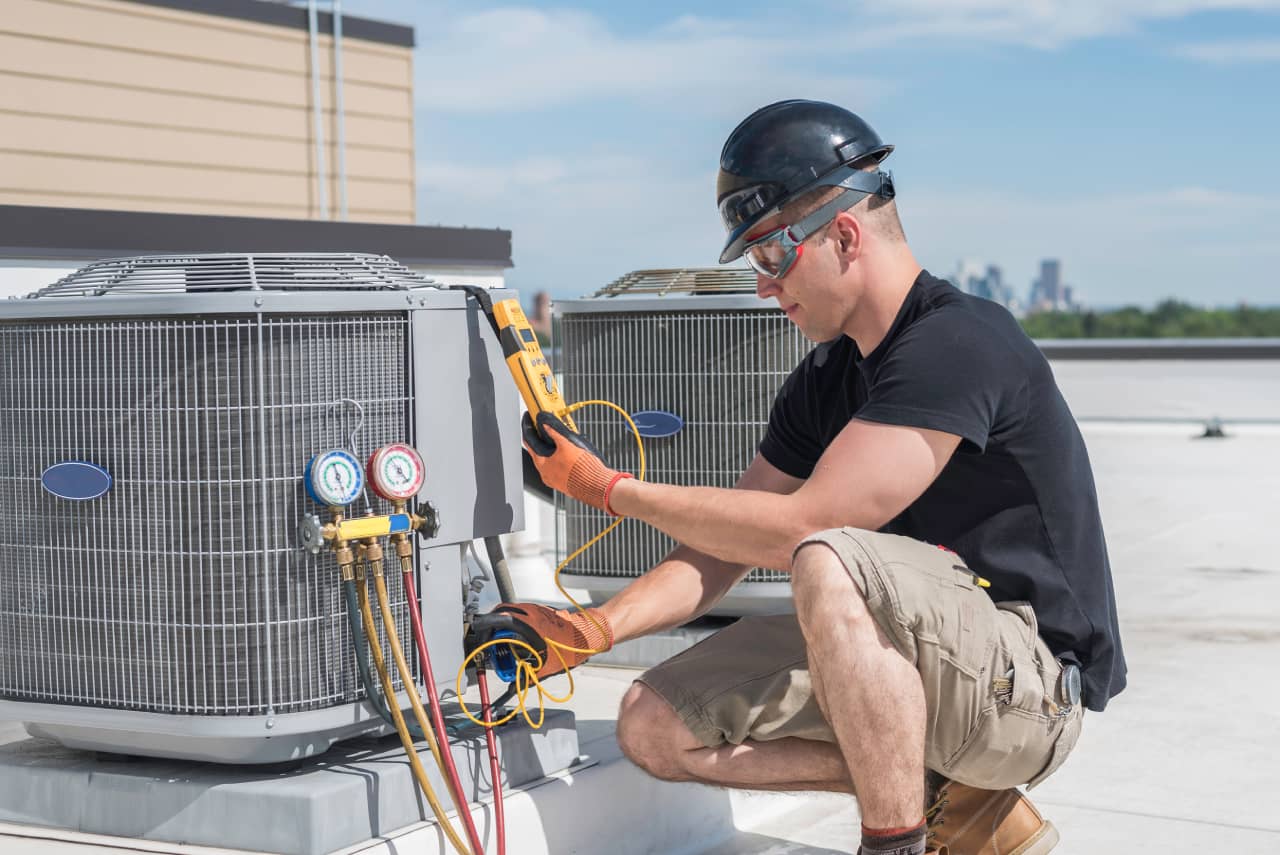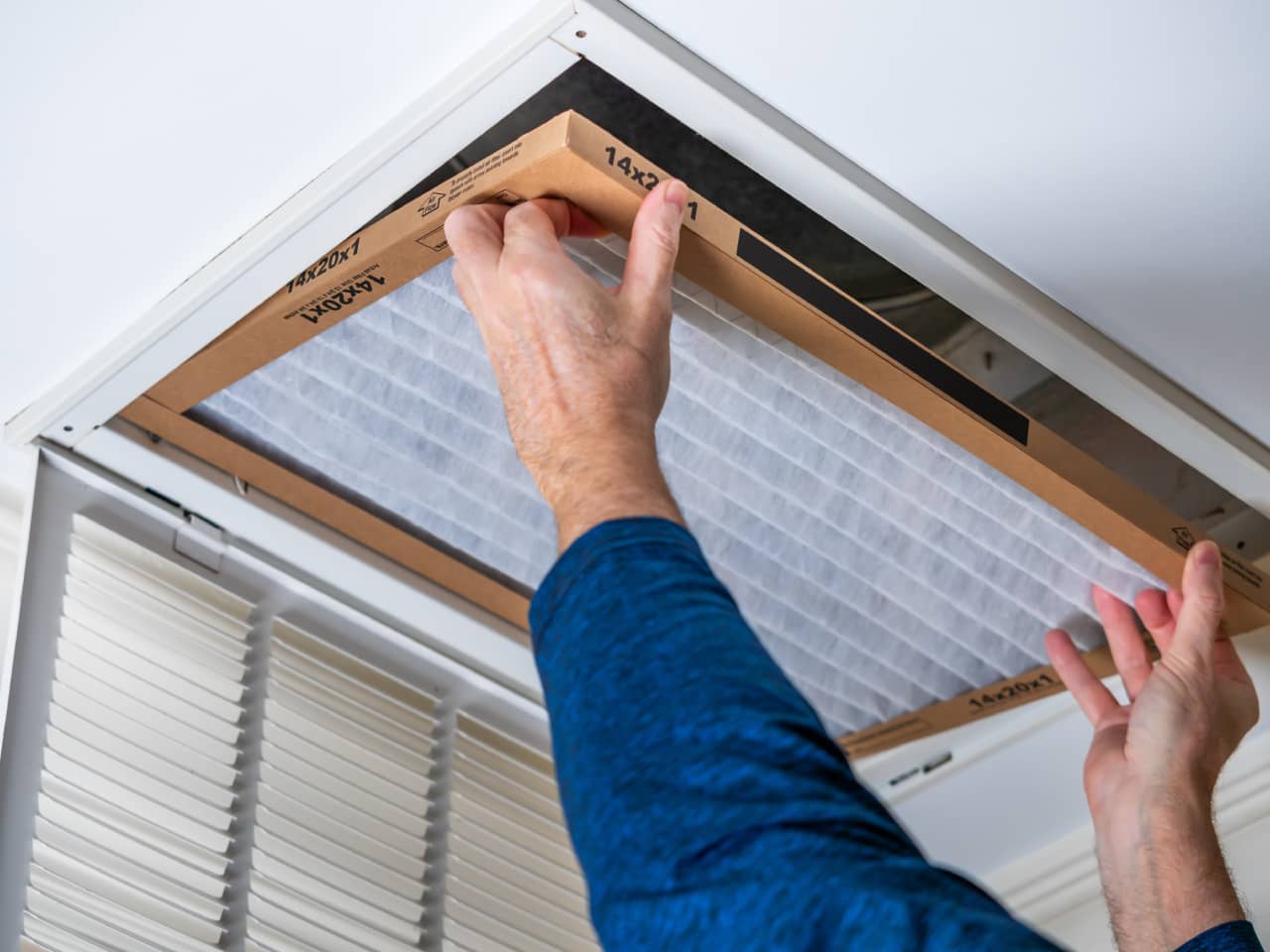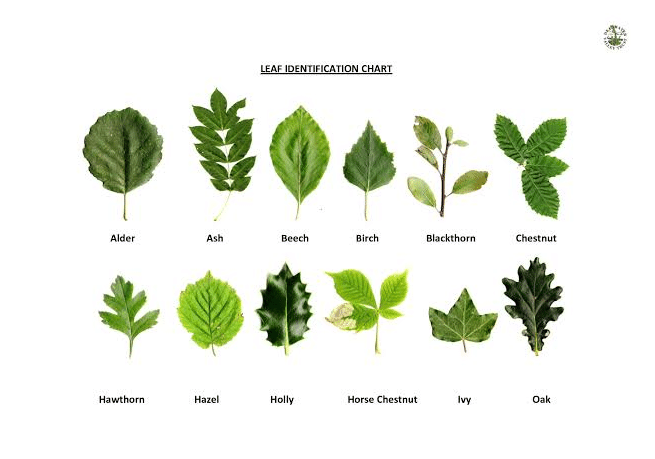Having a heating, ventilation, and air conditioning (HVAC) system in your home allows you to live more comfortably. This is because you can control and manipulate the temperature inside your home. You no longer have to brave the hottest summer or the coldest winter as you can allow your home’s temperature to be optimal whenever you like. However, with its great benefits, you should try to keep them in their best shape as much as possible.

Maintaining your HVAC system is a must. The more you care for it, the longer its lifespan will probably be. While it might require a few works from your end, it’ll help minimize your HVAC repair and allow your system to be in tiptop shape.
To help you, listed below are some easy tips you can do to maintain your HVAC:
1. Do Regular Check-Ups
One of the first things you should do when keeping your HVAC in tiptop condition is to call a professional for proper inspection and maintenance. A professional is the best person who can repair and replace any faulty system inside your HVAC unit. While they might be pretty costly, the benefits that they’ll bring to your home would be worth it. Furthermore, they can also help to maximize your unit’s lifespan.
As you look for the perfect person to check and maintain your HVAC unit, you might want to search for “HVAC maintenance near me” on your search engines, and you should find the best service within your vicinity. Ideally, you should look for a company near your area so you can quickly give them a call in case of HVAC emergencies. With professional help, they can promptly address any issues and avoid worsening their condition, allowing them to function normally. Additionally, they can enable your HVAC to be in its best condition, making your purchase worth it.
2. Inspect The Filter

Checking your HVAC’s air filters is one of the essential things you should do to keep your unit in its best shape. This simple act would help make your HVAC unit clean and avoid any possible damage. As you use your unit, it’ll accumulate enough dirt and dust that could affect the functionality of your unit. Apart from not giving clean air, it can also affect how it absorbs and releases air, adding too much pressure to the unit.
Ideally, you should inspect your filter every month by checking if it’s dirty or clogged. If you notice a generous amount of dirt on your filter, you should remove it immediately and wash it using water and a soft brush or fabric. Before putting it back in your unit, ensure that it’s completely dry to avoid damaging any parts of your HVAC. Alternatively, you can always replace it, especially if the dirt is too intense for you to clean.
3. Remove Any Obstacles
With your HVAC unit, most of your system would be placed outside for proper ventilation. To allow for maximum efficiency, you should remove any obstacles that might get in the way of it functioning well. This will include any bushes, leaves, or anything that might get in the way. Ideally, you should practice this every week since outside dirt can accumulate quickly.
If you still haven’t installed your HVAC, ensure that you place the system at least two feet away from any possible obstacles, such as your garden and tree. However, if you already have your system installed, you should ensure that you keep the area clean all the time. This would only be a short task that you need to do that greatly benefit your HVAC system.
4. Clean Drain Lines
As you use your HVAC, it’ll produce moisture inside your drain lines which could accumulate dirt in the future. While it might seem harmless at first, too much dirt might lead to clogged drain lines, harming your HVAC system. To prevent any possible issues, you should clean your drain lines all the time.
To clean your HVAC’s drain lines, you can begin by taking off the HVAC’s outer cover and cleaning the drain lines using a soft cloth and wiping the area clean. For a tougher stain, you might want to create a natural mixture to remove and unclog your drain line. You can mix water and vinegar, soak, and rinse the drain line, removing dirt and mold. Wipe the entire line clean and ensure it’s dry before placing them back in your unit.
5. Do Not Shut Multiple Registers
There might be times wherein you’re motivated to shut some of the registers on your HVAC unit because you’d want to restrict which rooms you’re only going to open. While it might feel that you’re saving plenty of money as you’re not allowing the HVAC to go through the entire house, it can actually help to push your system to work harder, putting an uncomfortable strain on their mechanics.
To prevent damaging your HVAC system, avoid shutting every register available. Ideally, you shouldn’t cover more than 20% of the HVAC’s registers. If you want to save on costs, you can just decrease the temperature and allow the air to flow through the entire home flawlessly.
6. Open And Replace Humidifier Strategically
Having an HVAC unit means you can allow your house to have enough humidity all the time. This will help avoid any dry air, resulting in plenty of illnesses that might develop, such as dry skin and allergies. However, keeping them running all the time might be unideal, especially if the season produces enough humidity inside your home.
Ideally, you should turn off the water to the furnace humidifier during summer as those months can produce enough humidity inside your home. However, as fall comes, you should replace the humidifier filter and turn the water back on. This will help give your home clean air, keeping your home away from dryness. Moreover, allowing your humidifier to rest once in a while would help to maximize its lifespan, steering you away from repairs and damages.
Final Thoughts
Maintaining your HVAC system is a must. Even if you hire a professional to do all of the maintenance and repair for you, doing your part would help minimize any issues and allow your HVAC to be in tiptop shape even with an annual maintenance check-up. This way, you can maximize its lifespan and get the most out of your purchase. It might even last in your home for more than two decades, with proper care, of course.




